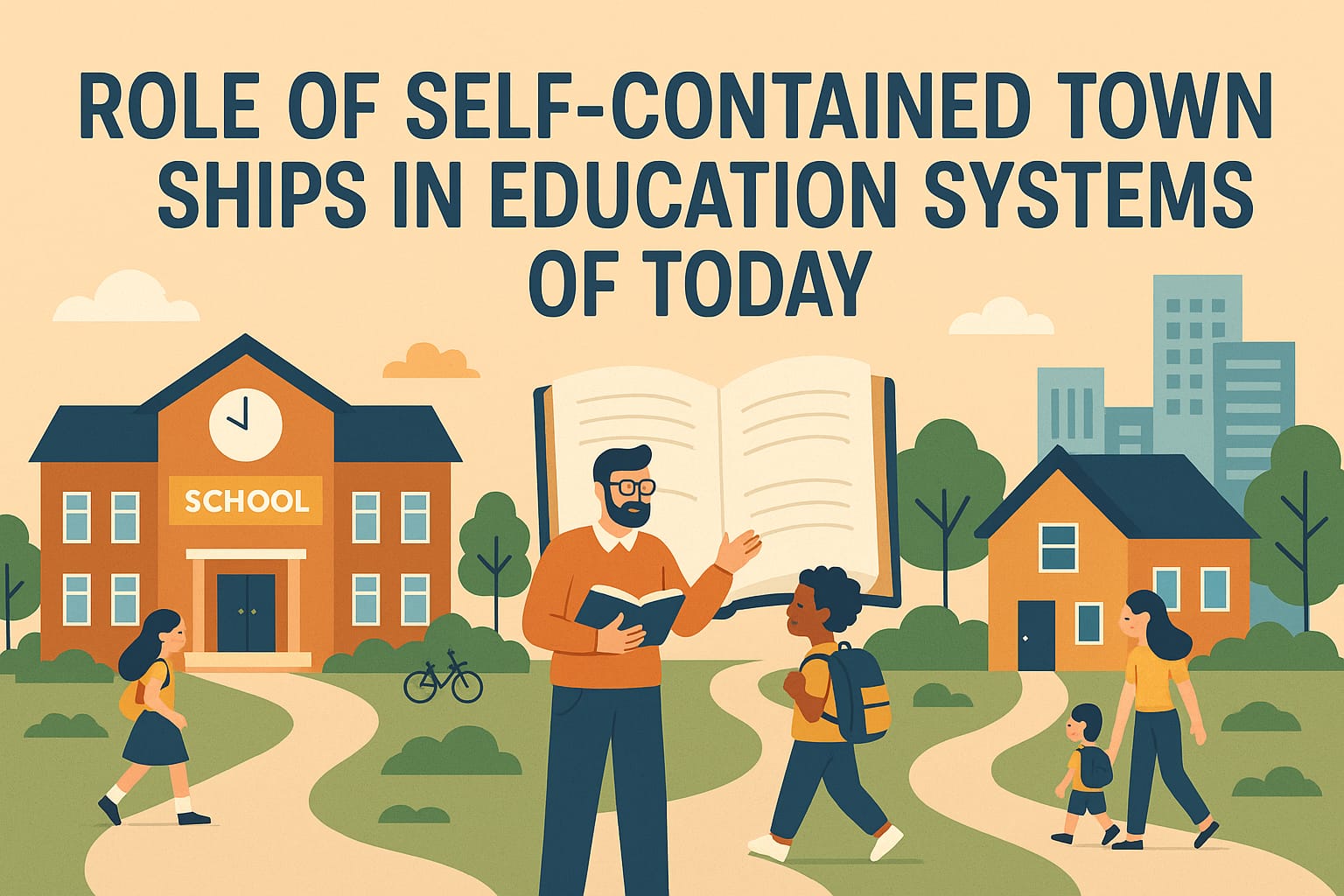
Self-contained townships are more than residences—they offer an integrated environment where learning, recreation, and neighborhood walk hand-in-hand.
What Are Self-Contained Educational Townships?
Self-sustained education townships are planned communities that offer space for schools or colleges, but additionally, for residential complexes, shopping malls, parks, sports grounds, and health centers. The idea is to offer a 360-degree environment in which the student, teacher, and family can live, learn, and develop together.
Benefits of Educational Townships
- World-class schools integrated with nature-based and secure neighborhoods: World-class schools can be integrated with nature-based and secure neighborhoods in these townships. This offers an integrated learning environment without hassle.
- Convenience and Safety: All is within walking or cycling distance, and the students travel less to study or participate in extracurricular activities. These complexes also ensure higher security.
- Exposure and Community: Children can spend their developmental years up to adolescence in an integrated, multi-culturally diverse community in contact with people from other cultures and backgrounds. This is emotionally and socially fulfilling.
- Sustainability and Smart Infrastructure: Most modern townships embrace green ideas in planning, smart infrastructure, and eco-friendly operations—imbuing students with the value of living green.
Examples in India and Abroad
In India, like township developments of Lavasa in Maharashtra or Amity Education Valley in Uttar Pradesh are wonderful examples. Outside the country, institutions like Stanford in the USA are housed within such arrangements. Easy interaction of academics and residence is facilitated through such arrangements.
Future of Townships and Education
With hybrid learning and e-learning gaining more prominence, autonomous education townships will be the norm. These can be constructed to evolve in response to learning demands while delivering a robust and fulfilling system for learning and personal growth.
Conclusion
Independent townships are the learning of the future. They reach far beyond the walls of the classroom to establish an entire environment for learning and development. With the changing nature of education, these unifying environments will play vital roles in molding well-rounded, innovative individuals.
